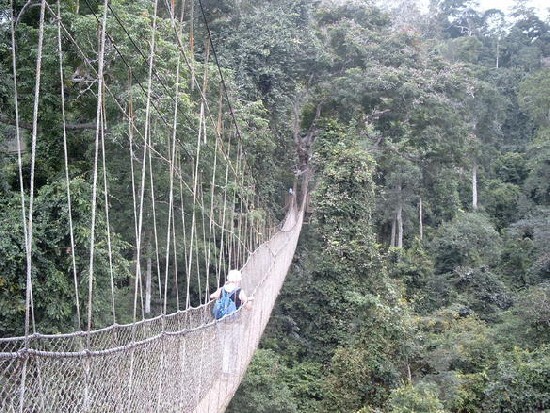
Ghana has lost an estimated $3.16 billion in revenue due to illegal operations by timber companies over the past decade, according to a recent disclosure by Civic Response, a civil society organization focused on natural resource and environmental governance. The revelation was made during a press briefing held in Accra, where the NGO detailed the extent of the financial and environmental impact caused by non-compliant logging firms.
Mr. Obed Owusu-Addai, Programme Officer at Civic Response, cited official data from government ministries, departments, agencies, and research studies to support the claims. According to him, timber contractors have failed to pay the mandatory Timber Rights Fees for over a decade, leading to a cumulative loss of approximately $2 billion—an estimated $200 million annually.
Additionally, illegal chainsaw operations, which have plagued the forestry sector since 2009, are believed to have cost the state another $200 million each year, further undermining efforts to sustain Ghana’s forest resources.
Mr. Owusu-Addai also highlighted an additional loss of $16 million resulting from the government’s failure to revise stumpage fees—charges levied for harvesting timber—since 2003.
“These financial losses are largely due to a combination of ineffective legislation and rampant corruption among public officials, particularly within the Forestry Commission and the **Ministry of Lands and Natural Resources,” he said.
Civic Response named several timber companies with outstanding payments to the state:
Carpo Limited – $314,178
J.D. Kwarteng – $288,000
African Hardwood Timbers – $390,000
Tepa Sawmills Co. – $426,000
Anapim Company Limited – $63,000
Chiraa Forest Mills – $369,600
Chiridi Construction Ltd. – $356,400
Oti Yeboah Complex – $1,014,178
The management of the Forestry Commission reportedly admitted to Civic Response that these companies refused to pay their annual fees, exploiting legal ambiguities in forestry regulations.
Mr. Owusu-Addai further alleged that large volumes of illegal timber are being exported to Burkina Faso, Mali, and Senegal, often facilitated by Indian and Lebanese companies. These exports are believed to continue through bribery and collusion with some public officials.

Ghana is currently losing its forest cover at an alarming rate of 2.2% annually, equivalent to about 135,000 hectares per year.
This deforestation not only impacts biodiversity but also accelerates climate vulnerability and undermines local livelihoods dependent on forest resources.
In his presentation titled “Saving Ghana’s Forest: Time for a Unified Law”, Clement Kojo Akpame, a law lecturer at the Ghana Institute of Management and Public Administration (GIMPA), emphasized the fragmentation of existing forest legislation as a major roadblock to enforcement.
“There are currently 27 different laws regulating the forest and wildlife sector, scattered across multiple documents,” he stated. “This legal disarray makes it nearly impossible for authorities to effectively enforce them.”
Mr. Akpame advocated for a comprehensive and unified forestry and wildlife code, which would streamline governance and improve accountability in the sector.
Both speakers underscored the vital role of the media and civil society in holding both government officials and companies accountable. They urged journalists to intensify investigative reporting in the forestry sector to expose wrongdoings and protect Ghana’s natural heritage.
This latest report from Civic Response sheds light on a deeply troubling reality within Ghana’s forestry sector. As the country strives to achieve sustainable development and environmental preservation, the call for legal reform, anti-corruption action, and public awareness has never been more urgent. Without decisive intervention, Ghana risks not only losing billions in revenue but also a critical part of its ecological and economic future.